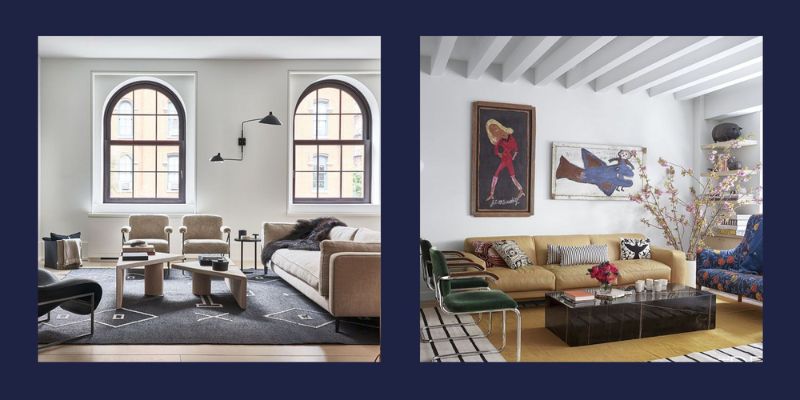In the Design Industry, the terms “Modern” and “Contemporary” are frequently used in opposition. However, these two terms have distinct meanings and refer to distinct design styles. Designers, homeowners, and anyone else who is interested in the aesthetics of their living spaces ought to have a thorough understanding of the distinction between modern and contemporary design. In this article, we will delve into “What is the Difference Between Modern and Contemporary Design?” and provide you with some valuable insights and some faqs. Let’s get started!
What is the Difference Between Modern and Contemporary Design?
Modern Design
The term “modern design” refers to a style that developed from roughly the 1920s to the middle of the 20th century, roughly from the 1950s onward. It typifies a particular period in plan history and is established in the pioneer development. Modern design is characterized by the following characteristics:
- Minimalism: Modern design emphasizes minimalism and simplicity. Clean lines, smooth surfaces, and cleaned up spaces are normal highlights of present day insides.
- Functionality: Modern design emphasizes functionality. Furniture and accessories are designed with practicality in mind, and form follows function.
- Natural Resources: Natural materials like leather, stone, and wood are frequently used in contemporary design.
- Neutral Color Palette: Modern interiors typically feature a neutral color palette with shades of white, gray, and black. Bold accents may be used sparingly to add interest.
- Open Floor Plans: Modern design favors open floor plans that create a seamless flow between different areas of a space. It promotes a sense of airiness and spaciousness.
Contemporary Design
Contemporary design, on the other hand, refers to the present-day style that is ever-evolving and influenced by current trends. Unlike modern design, contemporary design does not adhere to a specific time period. Here are the key characteristics of contemporary design:
- Integration of Styles: Contemporary design incorporates elements from various styles, blending them together to create a unique and eclectic aesthetic. It embraces a mix of traditional, modern, and futuristic influences.
- Emphasis on Comfort: Contemporary design places a strong emphasis on comfort and livability. Furniture and accessories are chosen for their functionality and ergonomic qualities.
- Bold and Eclectic Colors: While modern design leans toward a neutral color palette, contemporary design often features bold and vibrant colors. These colors add energy and personality to the space.
- Use of Technology: Contemporary design embraces technological advancements and integrates them into the living environment. Smart home features and innovative gadgets find their place in contemporary interiors.
- Flexible Layouts: Unlike the open floor plans of modern design, contemporary interiors can adapt to different layout configurations. They are designed to cater to the changing needs and lifestyles of the inhabitants.
FAQs About Modern and Contemporary Design
FAQ 1: What are some iconic examples of modern design?
Answer: Iconic examples of modern design include the Barcelona Chair by Ludwig Mies van der Rohe and the Eames Lounge Chair by Charles and Ray Eames.
FAQ 2: How can I incorporate modern design into my home?
Answer: To incorporate modern design, focus on clean lines, minimalism, and a neutral color palette. Choose furniture with sleek profiles and opt for open and uncluttered spaces.
FAQ 3: Is contemporary design always trendy?
Answer: Contemporary design is influenced by current trends, but it is not solely defined by them. It evolves with time and encompasses a wide range of styles, making it more versatile than a passing trend.
FAQ 4: Can modern and contemporary design be combined?
Answer: Yes, modern and contemporary design can be combined to create a unique and personalized aesthetic. The key is to strike a balance between the clean lines of modern design and the eclectic elements of contemporary design.
FAQ 5: What materials are commonly used in contemporary design?
Answer: Contemporary design often incorporates materials like glass, stainless steel, concrete, and synthetic materials. These materials contribute to the sleek and futuristic look of contemporary interiors.
FAQ 6: Are there any regional differences in modern and contemporary design?
Answer: Modern and contemporary design can vary regionally based on cultural influences and design preferences. For example, Scandinavian design is often associated with modern minimalism, while Asian design may incorporate traditional elements into contemporary spaces.
Wrap Up
In conclusion, while the terms “modern” and “contemporary” are often used interchangeably, they represent distinct design styles. Modern design refers to a specific period in design history, characterized by minimalism, functionality, and natural materials. On the other hand, contemporary design embodies the present-day style that evolves with time, integrating various influences and focusing on comfort, bold colors, and technological advancements.
Understanding the difference between modern and contemporary design is essential for creating harmonious and aesthetically pleasing living spaces. Whether you prefer the clean lines of modern design or the eclectic nature of contemporary design, both styles offer unique possibilities to express your personal taste and create a home that reflects your individuality.

